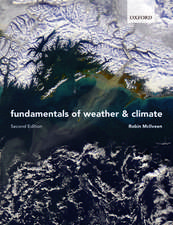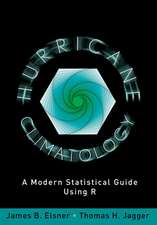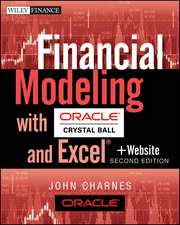Ethics in Modeling
Autor William A. Wallaceen Limba Engleză Hardback – 26 mai 1994
As powerful decision aids, models can be both beneficial or harmful. At present, few safeguards exist to prevent model builders or users from deliberately, carelessly, or recklessly manipulating data to further their own ends. Perhaps more importantly, few people understand or appreciate that harm can be caused when builders or users fail to recognize the values and assumptions on which a model is based or fail to take into account all the groups who would be affected by a model's results.
This volume provides a setting for a dialogue about ethics and shows the need to continue and define a vocabulary for exploring ethical concerns. It will become increasingly important for model builders and users to have a clear and strong code of ethics to guide them in making the ethical decisions they surely will have to face.
Preț: 799.60 lei
Preț vechi: 1038.44 lei
-23% Nou
Puncte Express: 1199
Preț estimativ în valută:
152.100€ • 159.75$ • 126.63£
152.100€ • 159.75$ • 126.63£
Carte tipărită la comandă
Livrare economică 04-18 aprilie
Preluare comenzi: 021 569.72.76
Specificații
ISBN-13: 9780080419305
ISBN-10: 0080419305
Pagini: 276
Dimensiuni: 155 x 234 x 432 mm
Greutate: 0.56 kg
Editura: Emerald Publishing
ISBN-10: 0080419305
Pagini: 276
Dimensiuni: 155 x 234 x 432 mm
Greutate: 0.56 kg
Editura: Emerald Publishing
Cuprins
Acknowledgements. Introduction. How Do the Construction and/or Interpretation of Models Affect Our Decisions? Uses of modeling in science and society (J. Allison et al.). An epistemological view of decision aid technology with emphasis on expert systems (H.D. Carrier, W.A. Wallace). Models in the public sector: success, failure, and ethical behavior (J.M. Mulvey). How Do Values Become Incorporated in Models? Rhetoric and rigor in macroeconomic models: populist and orthodox swings in Latin America (P.D. McNelis). Ethical and modeling considerations in correcting the results of the 1990 decennial census (S.E. Fienberg). The role of models in managerial decision making, never say the model says (V.P. Barabba). What Are the Ethical Responsibilities of Model Builders? From model building to risk management: evolving standards of professional responsibility (N.P. Ross, S. Harris). On model building (J.D.C. Little). Morality and models (R.O. Mason). One-sided practice, can we do better? (J. Rosenhead). Where Do We Go from Here? Ethical concerns and ethical answers (S.I. Gass). Responsible policy modeling (W.E. Walker). Society's role in the ethics of modeling (E.H. Leet, W.A. Wallace). Appendix A: Authors. Appendix B: Ethics in Modeling Workshop agenda. Appendix C: Ethics in Modeling Workshop Participants. Author Index. Subject Index.
Recenzii
This collection of essays makes very interesting reading, reminding us of the ubiquity of modeling in our lives today and of the ethical considerations required of modelers and statisticians.
Journal of the American Statistical Association
T.G. Groleau, Bethel College, Indiana
In summary, Ethics in Modeling does a good job of unveiling the ethical aspects of modeling and covers ethics from many angles. While most chapters would be beyond the grasp of the average undergraduate, they could make good background for a graduate seminar. The book is thought provoking and, at times, deeply philosophical. Anyone doing active modeling research would benefit by taking some time to dwell on these issues.
Journal of the American Statistical Association
T.G. Groleau, Bethel College, Indiana
In summary, Ethics in Modeling does a good job of unveiling the ethical aspects of modeling and covers ethics from many angles. While most chapters would be beyond the grasp of the average undergraduate, they could make good background for a graduate seminar. The book is thought provoking and, at times, deeply philosophical. Anyone doing active modeling research would benefit by taking some time to dwell on these issues.












